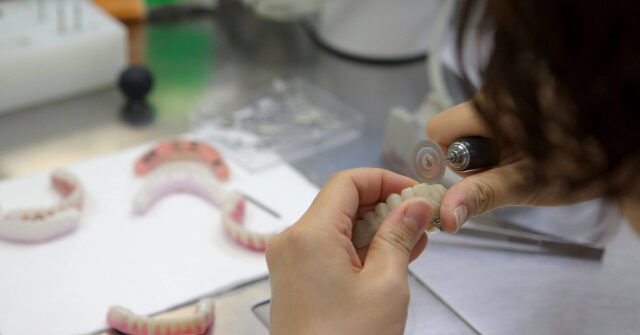Chinese social media users discovered they are no longer allowed to discuss a disturbing story about a medical supply company, Shanxi Aurui Biomaterials, caught selling dead human bodies and body parts.
The Chinese Communist Party’s vast army of social media censors began cracking down hard on the story three days after it broke, deleting a string of posts on the microblogging platform Weibo that lawyer Yi Shengua, president of the Beijing Yongzhe Law Firm, wrote.
Yi broke the story on August 7 with Weibo posts accusing funeral homes of sending vast numbers of human remains to Shanxi Aurui Biomaterials, which used the corpses as raw materials to produce dental bone implants.
According to Yi’s sources, the company took what it needed from the bodies, cremated the leftovers, and sent them back to families who had no idea their loved ones had been defiled. The company was accused of supplying its bone implant customers with forged consent paperwork from imaginary donors.
The story drew attention on Chinese legal social media because more than 70 families became aware of the scheme and are suing the biotech firm. Yi added to his account as he received information from lawyers across China who said they had become involved in the lawsuits.
More than 4,000 cadavers are believed to have been illegally diverted to the bone graft scheme, stolen from a dozen cities in seven provinces, generating $53 million in revenue over the past eight years.
The corpse-stealing scandal briefly received attention from Chinese state media, which claimed government investigators were all over the case, and some 75 suspects had already been taken into custody. One report said police seized more than 18 metric tons of human bones and 34,000 finished bone grafts from Shanxi Aurui Biomaterials as evidence in the case.
However, almost every state media report on the scandal abruptly disappeared, as did Yi’s original posts and many Weibo posts discussing the horrifying scandal. State media reports pertaining to investigations in the affected provinces have been changed to say officials are looking into “petty corruption” and “small-scale malfeasance” rather than body snatching.
“I can still see my Weibo post, but nobody else can. It seems that moves are afoot from higher up,” Yi said on August 9.
Yi said the scandal had been completely deleted from Weibo’s list of trending topics and Internet search engines. He was then dragged into a meeting with legal regulators, after which he began refusing to discuss the grave-robbing story any further with either Chinese social media users or foreign media.
Some observers suspect the Chinese Communist Party decided to censor the story because Shanxi Aurui Biomaterials is a subsidiary of the state-owned, Beijing-based China National Nuclear Corporation.
The Shanxi company is among China’s largest suppliers of bone grafts and substitutes, and demand is extremely high, so the communist government would not want the company to be ruined by a scandal. The case could also be extremely embarrassing for the regime, which has been aggressively pushing its subjects to forego burial in favor of cremation and burial at sea in order to conserve valuable real estate.
The Economist added suspicions that the Chinese Communist Party wanted to kill the story before it expanded to include state-owned medical giants, like Sinopharm, which may have purchased some of the tainted bone grafts. Sinopharm issued a statement on August 9 denying it was involved in the scandal.
The South China Morning Post (SCMP) reported that the body-snatching scandal had a major effect on the stock market portfolios of bone graft companies but not the effect one might think: their stocks surged after the scandal broke because eager investors concluded the demand for bone grafts must be overwhelming if criminal gangs were willing to steal corpses from funeral homes to fulfill it.
Stock prices for bone graft suppliers other than Shanxi Aurui Biomaterials gained 15 to 20 percent in daily trading after the corpse-stealing story broke, even as China’s market benchmarks slid by 0.3 percent.
“Some people are taking advantage of the scandal to buy on the news, a popular trading pattern this year given the weak fundamentals in the economy. The logic is that demand for substitute products will increase,” sighed Wang Chen, a partner in Shanghai’s Xufunds Investment Management company.
